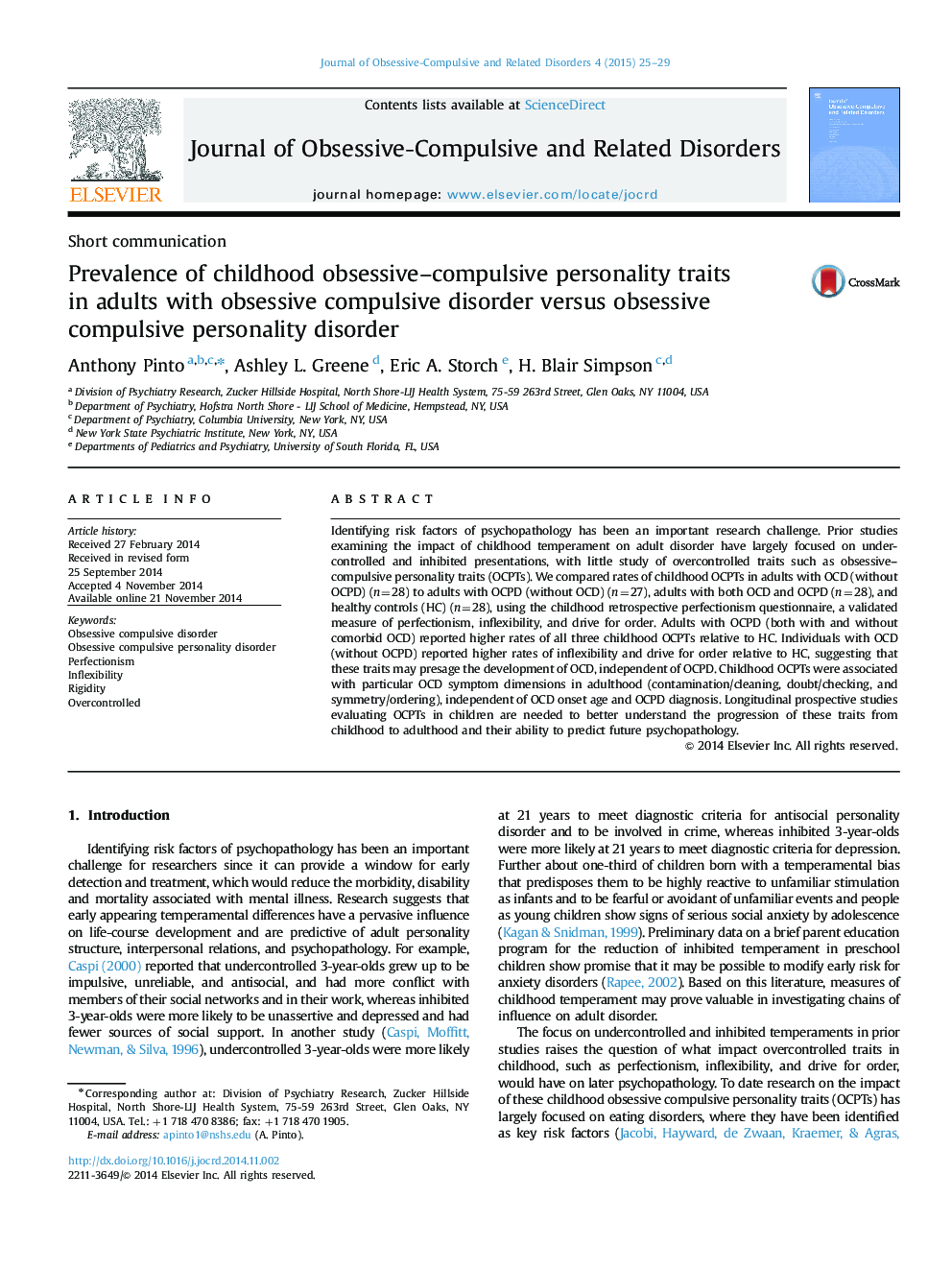| کد مقاله | کد نشریه | سال انتشار | مقاله انگلیسی | نسخه تمام متن |
|---|---|---|---|---|
| 912336 | 1473203 | 2015 | 5 صفحه PDF | دانلود رایگان |
• The impact of overcontrolled childhood temperament on adult disorder is understudied.
• Adult OCPD and OCD samples were compared on childhood obsessive-compulsive traits.
• Childhood inflexibility and drive for order may presage OCD onset, independent of OCPD.
• These traits are associated with earlier OCD onset and particular symptoms in adults.
• Longitudinal studies are needed to study progression of childhood traits to adulthood.
Identifying risk factors of psychopathology has been an important research challenge. Prior studies examining the impact of childhood temperament on adult disorder have largely focused on undercontrolled and inhibited presentations, with little study of overcontrolled traits such as obsessive–compulsive personality traits (OCPTs). We compared rates of childhood OCPTs in adults with OCD (without OCPD) (n=28) to adults with OCPD (without OCD) (n=27), adults with both OCD and OCPD (n=28), and healthy controls (HC) (n=28), using the childhood retrospective perfectionism questionnaire, a validated measure of perfectionism, inflexibility, and drive for order. Adults with OCPD (both with and without comorbid OCD) reported higher rates of all three childhood OCPTs relative to HC. Individuals with OCD (without OCPD) reported higher rates of inflexibility and drive for order relative to HC, suggesting that these traits may presage the development of OCD, independent of OCPD. Childhood OCPTs were associated with particular OCD symptom dimensions in adulthood (contamination/cleaning, doubt/checking, and symmetry/ordering), independent of OCD onset age and OCPD diagnosis. Longitudinal prospective studies evaluating OCPTs in children are needed to better understand the progression of these traits from childhood to adulthood and their ability to predict future psychopathology.
Journal: Journal of Obsessive-Compulsive and Related Disorders - Volume 4, January 2015, Pages 25–29
